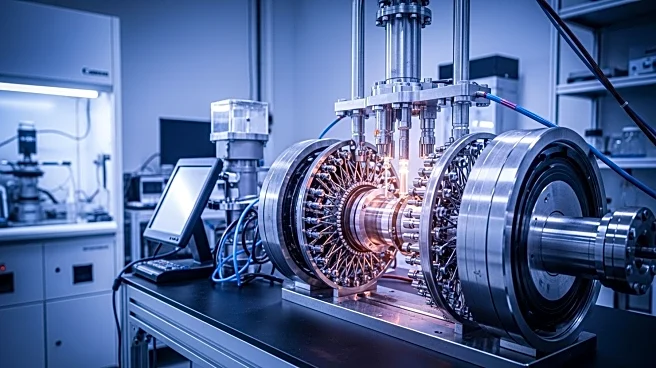What is the story about?
What's Happening?
Northwestern University chemists have introduced a new plastic upcycling process that could significantly simplify the recycling of mixed plastic waste. The process utilizes a nickel-based catalyst to selectively break down polyolefin plastics, which constitute a large portion of global plastic consumption. This catalyst transforms low-value solid plastics into liquid oils and waxes, which can be upcycled into higher-value products such as lubricants and fuels. The catalyst is effective even with plastics contaminated by polyvinyl chloride (PVC), a polymer that typically renders plastics unrecyclable. The study, published in Nature Chemistry, highlights the potential for this catalyst to bypass the labor-intensive sorting process currently required in plastic recycling.
Why It's Important?
The development of this catalyst is significant as it addresses one of the major hurdles in plastic recycling: the need for meticulous sorting of plastic waste by type. By potentially eliminating this step, the process could make recycling more efficient and economically viable. This advancement could lead to increased recycling rates for polyolefin plastics, which are currently alarmingly low. The ability to recycle contaminated plastics also opens up possibilities for reducing the environmental impact of plastic waste, which often ends up in landfills and contributes to pollution.
What's Next?
The study suggests that the catalyst can be regenerated over multiple cycles, indicating its potential for long-term use in industrial applications. The research team plans to continue exploring the catalyst's capabilities and its application in large-scale recycling processes. If successful, this technology could revolutionize the plastic recycling industry, making it more sustainable and reducing the reliance on landfills.















